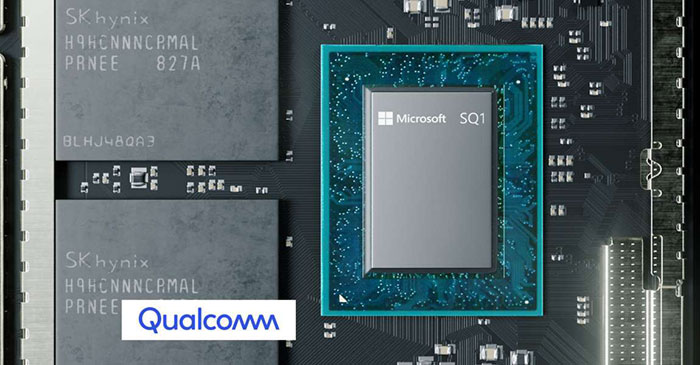Just ahead of the weekend Bloomberg published a report, citing unnamed insiders, saying Microsoft is working on its own Arm-based processors for servers and its Surface line of computers. It is important to understand the scope of the touted server processors – they are being designed for Microsoft to run its own cloud services on – not for third party use. On the 'Microsoft Silicon' Surface rumours, these plans seem to be less advanced at this stage, so devices like the Surface X look likely to stick with Qualcomm for at least another generation.

Microsoft's cloud computing rivals like Amazon, with AWS, have already established their own processor designs in their servers, so Microsoft's initiative isn't a huge surprise. Over recent years and months Microsoft has been strengthening its computer processor engineering talent, picking off personnel from the likes of AMD, Intel, Nvidia and Qualcomm. Of particular note is that it welcomed several of Qualcomm's chip designers to the fold after the smartphone chip designing giant abandoned server processor efforts.
Within Microsoft the chip design unit is said to report to Jason Zander, head of the Azure cloud business, rather than Panos Panay, who oversees Surface products. This points to the close partnership and primary purpose of any new Microsoft Silicon, but upcoming generations of Surface computers could also leverage Microsoft's own Arm-based SoCs, say the sources.

Microsoft partnered with Quaclomm for the SQ1 chip in the Surface Pro X
Since the initial publication of Bloomberg's report on Friday it has been updated with a statement from Microsoft that confirmed investments and developments in silicon design. "Because silicon is a foundational building block for technology, we’re continuing to invest in our own capabilities in areas like design, manufacturing and tools, while also fostering and strengthening partnerships with a wide range of chip providers," said Microsoft spokesman Frank Shaw.
Intel shares took another knock on Friday, down by over 6 per cent, with Bloomberg's story likely a contributing factor in the slide.













